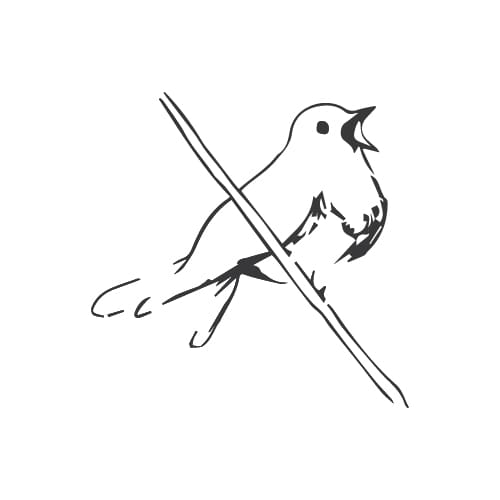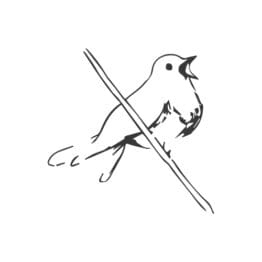Dad
- Nightingale, Sandra Shaw Homer
Sandra Shaw Homer takes us through the complicated years of her childhood with grace and skill. It’s a piece that speaks to the prevalence of sexual violence in domestic, everyday settings, and it also provides a powerful example of the ways in which survivors can turn to trusted family members to find peace and healing.

Dad
by Sandra Shaw Homer
The first time my father talked to me about sex, I was thirteen and he was driving us to yet another home (we had already lived in seven). The extent of my sexual education to that point was a paperback called The Facts of Life and Love that my mother had handed me the year before. “Any questions?” she had asked after I read it, but I was too embarrassed to ask any, and she didn’t offer to discuss it further. I had also been doing a fair amount of necking with my boyfriend that year (he was 16 and had a car), although I really didn’t understand where that sort of thing could lead. We had been allowed fifteen minutes after the movie to get a milkshake and sit in the car kissing. My father knew the exact time the feature was over.
On that moving day, my mother and sister drove in the station wagon with the two dogs, and Dad and I drove in the old Mercury with the last of our things. Dad’s tone was ugly as he explained to me that boys only wanted one thing when they were dating, but that they wanted to marry virgins, and if I didn’t stay a virgin, nobody would ever want to marry me. I would be “used goods.” He said he suspected what Peter and I had been doing after the movie, and I said, “Dad, we only had fifteen minutes!”
“It can happen in less time than that,” he said bitterly.
The second time my father talked to me about sex I was eighteen, and my parents had just found out that I had already lost it. My mother bemoaned that I was “lost forever” and night after night cried herself to sleep; my father spent the summer after my freshman year berating me for my loose character and calling me a slut. That was all anybody seemed to talk about that summer, and I thought I would go crazy. I came close to running away. Something in me was screaming for survival, but I knew deep down that I was bad, thoroughly bad.
The third time, Dad and I were alone on his small yacht in Biscayne Bay. I was twenty-seven and already past my first doomed marriage. We cooked dinner and had too much to drink, and then, sitting side-by-side listening to music as the boat rocked gently at anchor, he put his hand on my leg and said, “Sandy, I’ve always been physically attracted to you.” I put down my drink, looking straight ahead of me, and stood up, the word “No” bouncing around in my skull like a terrified animal. I stumbled into the forward cabin and locked the door. The next morning he apologized.
There had been antecedents to this that I never understood until years later. All through my teens, whenever we were alone together, he had treated me as if we were out on a date. He asked me to sit right up next to him in the car (bench seats in those days). At parties he always pulled me close when we were dancing. When I was at university, he’d come into Philadelphia and take me out for a Chinese dinner. He told me things about his marriage that a father should never share with a daughter. These confidences made me feel strange, but I was so hungry for his attention that I was helpless to define it, much less change it. And I was too ashamed to talk to Mom – if she suspected anything, she never could have defended me.
It took me a lot of time to put all this together and see that my father’s refusing to take my part during the long, nasty divorce from my second husband was driven by his desire to punish my mother by punishing me – a surrogate – for the ways in which she had been unfaithful. I had left my husband, ergo, I was bad, and my husband, just like Dad, was the injured party.
Growing up in the midst of emotional chaos, one searches desperately for anything one can feel control over. Mom learned early to succumb . . . and stay numb with booze. But with my fierce sense of justice, I tried to fight my father’s stranglehold in countless ways. In fact, I fought so hard and so relentlessly that Alison, watching her older sister beat her head against a wall, chose the path of simple avoidance and found a life as independent from our family as she could. Smart girl. In doing battle, I was the one who remained in harm’s way.
“You don’t have to forgive him,” Alison insisted to me later, her right eyebrow sharply raised. “He did wrong.” We were sitting across from each other over coffee long after both our parents were dead.
“Then I need to forgive myself,” I said, the tears welling up as they always do.
“For what?” and she seemed to rise up before me like an avenging angel.
“For accepting his abuse,” I said, at a loss to express the well of emptiness I felt inside, “for swallowing my chains . . . for not really seeing Mom.”
She sighed. In this last, we had both been guilty, but she wisely said, “You have done nothing to forgive.”
I am so grateful to have such a sister in my life. And I thank God he never touched her.
*
A graduate of the University of Pennsylvania and Cornell, Shaw Homer has lived in Costa Rica for 28 years, where she has taught languages and worked for environmental NGOs. In addition to writing for the local press, her fiction, creative nonfiction and poetry have appeared in both print and on-line literary and travel journals, as well as her blog, writingfromtheheart.net. Her first travel memoir, Letters from the Pacific, received excellent Kirkus and Publishers Weekly reviews.

